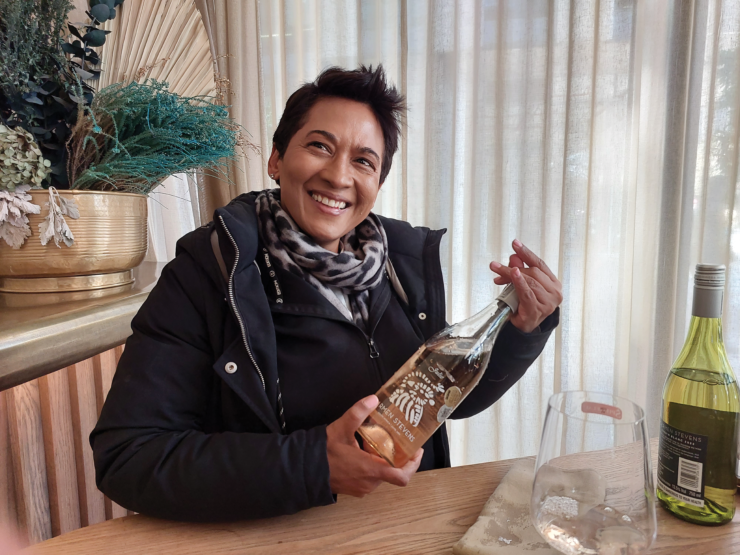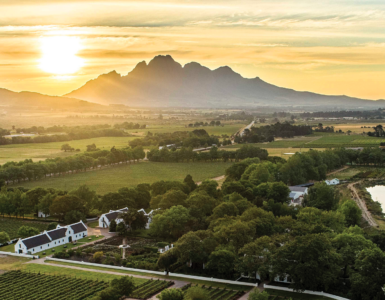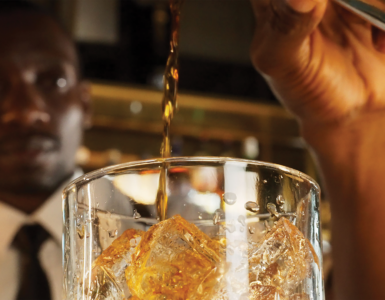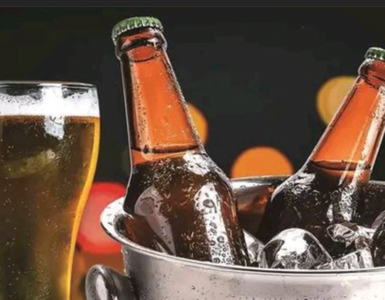BARRIERS: From the distinction of being South Africa’s black winemaker to scooping distinguished local and international awards…
By Len Maseko
A long journey that requires vision, resilient spirit, ambition and courage is less travelled by the faint-hearted.
Unless blessed with tough-as-teak streak and determination Carmen Stevens, whose inspiring winemaking journey underscored by pure grit and never-say-die attitude. Without which, she would not have been able today to claim the distinction of being the first black person to be accepted to study winemaking in South Africa and qualify in 1995 as the country’s first black winemaker.
Indeed, her story would not have been a tad illustrious and inspiring had she given up when doors leading to her dream were shut to her and quit.
Yet, quitting was never an option for the young girl from Belhar, one of the hardened neighbourhoods in the Cape Flats, where she was inspired to pursue winemaking by reading books about wines and envisioning a better life in the world of noble grapes and vineyards.
Once her casual interest had coalesced into an ambition to study to become a winemaker – which was a long shot in the early 1990s of apartheid South Africa, she wasted no time to take a leap of faith and applied to study winemaking at Cape’s Elsenburg Agricultural Training Institute.
But, to her shock, she was rejected – for two consecutive years from 1991 to 1992, all because she was not White. Undeterred, she applied for a third time – but was rejected yet again. This time, however, she took the matter in her own hands, vowing to take no “No” for an answer.
The feisty girl from the Cape Flats furiously filled up a fourth application and badged into Elsenburg’s administration block to rattle the cage. Demanding to be enrolled, she threatened to expose the agricultural institute’s racial discrimination to the media – they relented.
She was immediately enrolled as a student and graduated in 1995 with a degree in winemaking. Still, the Cape winelands were not ready for a paradigm shift that a black girl like her would impose to a conservative sector which was, not only male-dominated, but still white and had not even remotely ventured to re-imagine itself in a non-racial South Africa lurking on the horizon that time.
The rest is history. To paraphrase new South Africa’s founding father Nelson Mandela, there was no stopping an idea whose time has come. And, in the vein of the title of Sam Cooke’s soul classic Change is Gonna Come, indeed it was coming; having been a long-time coming unseen anyway. A stark reality unfathomable to those who would not see.
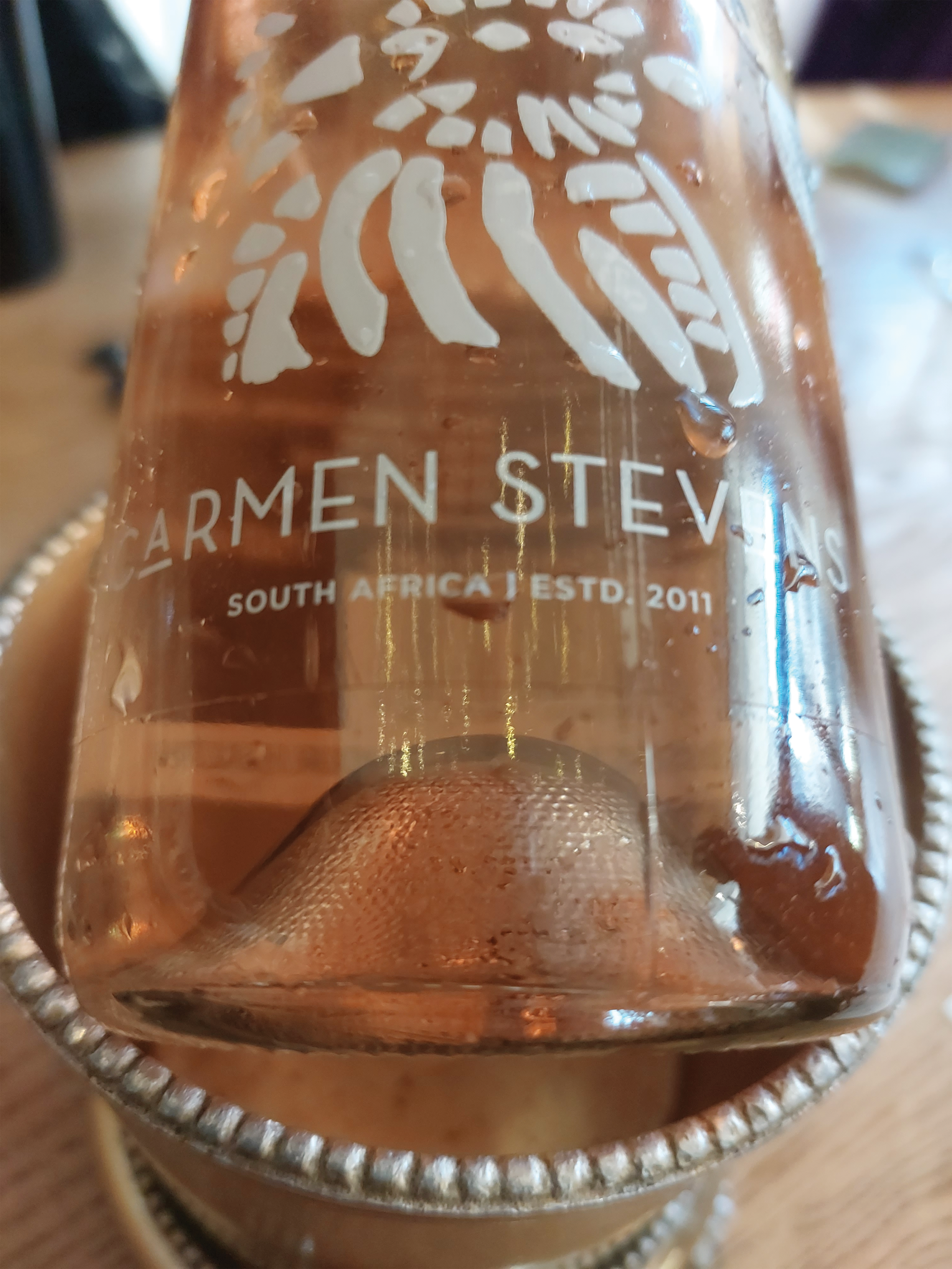
Recognition
Racial barriers and stereotypes still abound in the mid-1990s, yet still so on a much lesser degree today, though, Stevens mustered her innate fighting spirit and determination to crash down the glass ceiling that smothered many a dream and quest for self-fulfilment for people of colour and – not least – her gender.
Re-telling her story, with much grace belying her steely core, during an interview with an online publication years later, she says:
“I qualified in 1995… I started my winemaking career with Stellenbosch Farmers’ Winery. At the end of the year 2000 I was appointed winemaker within the Stellenbosch Vineyards group, as site winemaker for the Welmoed premises.
“In 2005 I was appointed winemaker for Amani Vineyards. It was a great moment for me to work for such a prestigious winery. Now to be given the chance to work on my own wines is even greater!
“Every vintage comes with its own challenges, and, as a winemaker, you need to adapt and make informed decisions to complement what nature has given you. That is the joy of winemaking. Tasting wines from other wine makers in different countries is another pleasure and a means of communication between wine makers, I believe. “I have been very proud to win some great awards along the way as well… without wanting to brag too much!”.
Indeed, what a ride it’s been for the mother of two girls, fathered by former hubby, New Zealand-born Chris Kelly, a winemaker of note himself.
Stevens was recognised with a Top 10 Pinotage award in 1998 for her very first red wine production. Her industry awards include International Decanter Trophy winner, 2015 Winemaker of the Year California, 2018 – Winemaker of the Decade UK (Naked Wines.com).
In 2019, She registered the first 100% black-and-woman-owned winery in Stellenbosch, and was awarded South Africa’s Entrepreneur of the Year in 2017 and 2019. The Carmen Stevens NPO was registered in 2015, and today the foundation provides over 25 000 learners from 125 schools in the Western Cape with a nutritious breakfast and lunch. Her wine label displays a ‘tiger’, which, on closer inspection, reflects three figures. She adds: “A man on the right side of the ‘tiger’, a bird with a red beak on the left side of the ‘tiger’ and a face of a dog between the man and the bird all taken together by the body and colour of the tiger. The ‘Tiger’ is very special to me. My eldest daughter, Caitlin, painted ‘Tiger’ at school when she was only six years old and I love it!”
Utterly passionate about both her wines and vocation, Stevens counts among her challenges in the earlier days of her career as having often to confront patriarchy and condescending attitudes – she had had to nip in the bud when rearing the ugly head. To which, recalls one incident, some that still evidently boils her blood to no end, but still recalls today as if it happened yesterday.
On this particular day, she ordered grapes from a local farmer, with whom she had a supply contract and a good relationship until then. And, as usual, the grapes arrived as promptly as the farmer’s deliveries ordinarily did.
‘Something odd’
Tasting the grapes again, having been excited earlier about their sublime quality on the visit to the farmer’s property to order, she sensed something odd: they tasted nothing like what she had ordered. Furious at being taken for granted, she called the farmer by phone and summoned him to her winery. What’s this? she bellowed at the farmer, who seemed perplexed by Steven’s indignant mood.
“I told the farmer I would not allow myself to be taken for granted and insulted. These were not the grapes I ordered. He was taken aback. He tried to argue that these were the same grapes I ordered, but I didn’t budge and promptly sent him packing,” Stevens retold the story with a chuckle to me yesterday, as we tasted through a flight of her latest vintages of her supremely delicious wines at Ethos Restaurant in Rosebank. Her wines speak of an incredible journey spanning 28 years, during which she garnered immeasurable experience, knowledge and wisdom.ers
Personal mantra
For all her staying power, she is grateful to an individual of no less a stature as Nelson Mandela, for his greatness and one particular wise quote: “If you talk to a man in the language he understands, that goes to his head. But if you talk to him in his language, that goes to his heart”.
Pearls of wisdom, indeed, ones she has, not only adopted as a personal mantra, but also immortalised in every label of her wines, as testimony to her unique journey and ethos. They read, for the benefit of those who happen to choose her wines on the shop shelves, thus: “I trust that this wine I have prepared for you is in your language and speaks to your heart”. The words unmistakably resonate in her wines, which dazzle with their peculiarity, terroir-essence, exquisite structure and slick finish – and show a singular thread underlining her utter attention to detail and passion. No doubt, her flagship Nemrac is an emblematic expression of these qualities – a stylish, multilayered delivery that pays homage to the ingenious blending of Cabernet Sauvignon (48%), Petit Shiraz (32%), Petit Verdot (16%) and Merlot (4%) behind it.
Again, in producing her onion-peel-hued Julie Rose, she has typically flipped the script indulge in out-of-the-box blending of multiple red varietals from most of the distinguished French regions to produce a stunner. The wine is an ode to her octogenarian mum Julie, who once commandeered a long and solo driving feat from Cape Town to Upington, defying her age.
No less a feat by herself too for carving a niche for herself in a tough industry – thanks to her indomitable spirit and grit, which is decipherable also in her class of women who started their winemaking journey in the 1990s – such as Nondumiso Pikashe and Ntsiki Biyela – and the myriad others that followed the untested sojourn behind Cape’s grape curtain.

